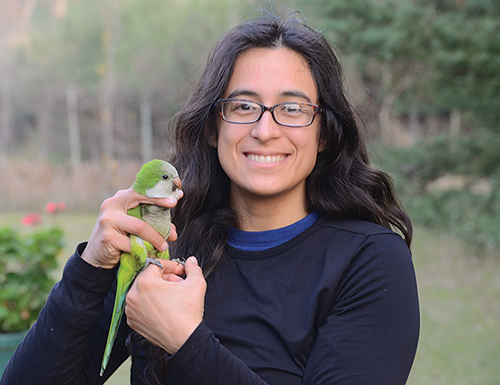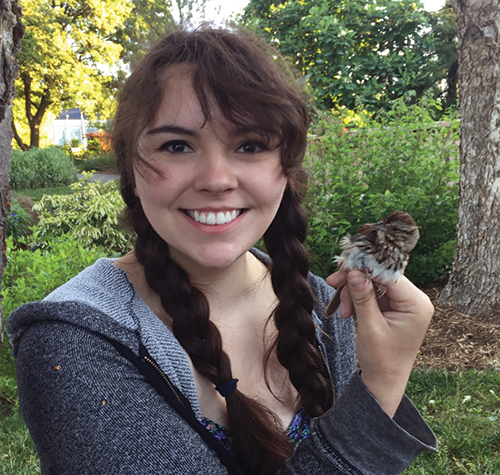Two NMSU graduates and one soon-to-be grad have joined an elite group of young scholars to earn National Science Foundation Research Fellowships, the country’s oldest fellowship that directly supports graduate students in various STEM fields.
Valerie Brewer ’20, who graduated in May, double majored in conservation ecology and biology and minored in genetics and biotechnology. The program will fund Brewer’s research for the next three years into the mating habits of song sparrows while she pursues a Ph.D. at Oregon State University, where she will join the Cornelius lab. The Tularosa, New Mexico, native’s fellowship has an annual stipend of $34,000 per year and an additional $12,000 per year for university tuition and fees.
“I aspire to a research career that will benefit the conservation of species impacted by anthropogenic activity and inform the conscientious planning of urban areas,” Brewer says.
Ryan Quintana ’20, who graduated with a bachelor’s degree in mechanical engineering in May, is receiving a Graduate Research Fellowship to continue his studies at NMSU to pursue a doctorate degree in mechanical engineering. His fellowship includes a three-year, $48,000 per year award, which will fund his research project, “mechanical insights on drug delivery nanosystems: nonlocal modeling and experiments.”
“I aim to create realistic mathematical models that capture how nanoscale structures, such as carbon nanotubes, interact with their surroundings while delivering drugs to specific sites within the body,” says the Santa Fe, New Mexico, native.
Grace Smith-Vidaurre will receive her Ph.D. in biology from NMSU in December 2020. Her two-year Postdoctoral Research Fellowship begins in February 2021 and will provide a salary and research stipend of $138,000 over that time to continue her research into vocal learning habits of songbirds, specifically the zebra finch with co-mentors Erich Jarvis at The Rockefeller University and Elizabeth Hobson ’13 at the University of Cincinnati.
“As an NSF fellow, I’ll address how the early-life environment influences vocal learning. I will ask how stress, experienced early in life, alters vocal learning phenotypes through heritable epigenetic variation, or molecular variation beyond the genetic code.”

Quintana

Smith-Vidaurre

Brewer

Dove Hall, Room 212
305 N. Horseshoe Drive
Las Cruces, NM 88003